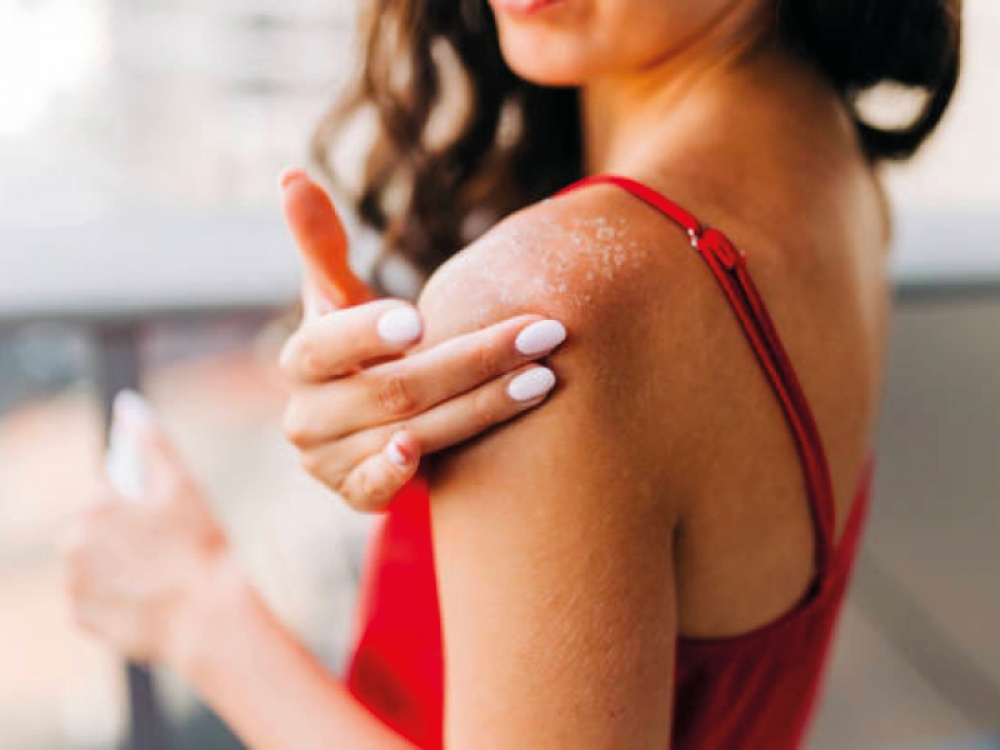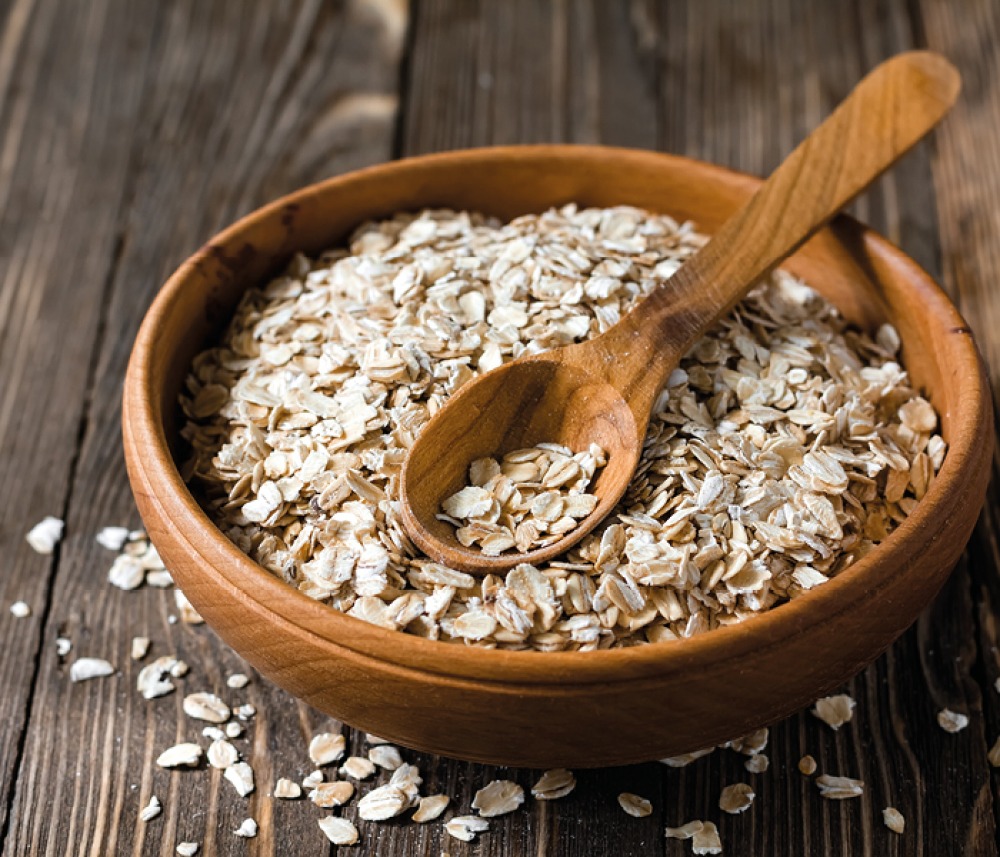What You Should (And Shouldn't) Put On Your Sunburn

There are a number of short- and long-term effects of getting sunburnt, and it's best to avoid letting this happen at all costs
Even in the UK, it is best to avoid long periods of sun exposure all together, where you're likely to result in sun burn. You should stay in the shade and cover up areas of the body especially throughout the middle of the day until the evening where the sun is at its hottest and UV rays are stronger.
If you do spend time sun, you should always wear sun protection with a minimum of SPF30, and try to find one that is broad-spectrum and mineral based, such as SOS SPF 50. Daily wear of SPF will not only help protect against sun damage, but it will also help with prevention of early signs of ageing, benefitting the skin for multiple health and beauty reasons.
If despite your best efforts you do get sunburned, then it’s time to take action. First things first, drink plenty of water to prevent dehydration and take a lukewarm bath or shower to help soothe the skin. Next it’s time to think about applying some after-sun products. Chartered chemist and founder of SOS Serum Skincare, Bruce Green, tells us, ‘It's important to watch what products and ingredients you're using on your skin as aftercare. Soothing heat rash, sunburn and prickly, sensitive and irritant skin post-sun exposure could be less straightforward than you think.’
With some unexpected ingredients you should put on burnt skin, and even more shocking ones you should not, here we’ve picked out the post-sun aftercare you need this summer.

WHAT TO AVOID
Vaseline
The British Skin Foundation recently shared how using creams with petroleum, benzocaine or lidocaine are able to trap heat in the skin or cause localised skin irritation to the sunburnt area.
Retinol
Retinol can be used to help reverse the signs of sun damage, however, it should be absolutely avoided as a means for soothing sun burn. Retinol should not be used in conjunction with sun exposure, or worn in the day, due to the skin irritating effect it can have. Retinol will only further sensitise the skin, and if you already have high sensitivity to the sun, it will only cause further skin damage.
Hyaluronic Acid
Whilst hyaluronic acid is one of the best sources of topical hydration for the skin – which is absolutely needed to help with drier skin due to the sun – it isn't good for soothing the skin from sunburn. It will however help with skin peeling and to lock in much-needed moisture.
Water or Ice
If you cool down in a body of water and then proceed to lay out in the sun without drying the body first and reapplying sun cream, you'll find water has minimal protection against UV rays. Water reflection also strengthens the UV rays, making them more intense and you more susceptible to further sun damage.

INGREDIENTS TO PICK UP
Wasabi
Wasabi has a high concentration of powerful antioxidants and anti-inflammatory compounds, offering a number of benefits for the skin, including to help soothe sensitive or irritated skin. It can also neutralise harmful free radicals that can cause oxidative damage and premature aging. The SOS Serum contains both wasabi and peppermint, which offering soothing properties for the skin.
Peppermint
If your sunburn is causing an itchy sensation, peppermint is an ingredient that can be used to stop itching and to help relieve pain. Further to this, it has a calming effect and is often used to treat headaches and nausea, which are associated as side effects of sun damage.
Oatmeal or Soy
A great option for soothing skin, as it’s full of anti-inflammatory properties, is oats or oatmeal. An oatmeal bath could be the way to help soothe your sunburn as it helps nourish the skin to relieve dry, flaky skin. Another lesser-known ingredient which can benefit sunburn is soy. Soy milk is a natural anti-inflammatory and can soothe the skin post-sun exposure.
Read More: The Sun Creams You Need to Keep Your Skin Safe this Summer
Jojoba
If you have spent longer in the sun than you meant to and need a natural sunburn relief, jojoba, a natural wax, can help reduce redness, irritation and inflammation, and acts in a similar way to a non-steroidal anti-inflammatory drug to relieve pain and swelling.
Grapeseed Oil
This is a safe and effective skin therapy oil with antioxidant properties, soothing and desensitising. SOS H20 Day Cream is a cooling and healing moisturiser with a low SPF and also contains grapeseed oil.
Vitamins
Often forgotten are vitamins. Vitamin A is probably the most important to support the natural health of the skin. Melanocytes, Keratinocytes and Fibroblasts all depend on Vitamin A and a deficiency will also result in a depletion of Vitamin C. Vitamin C occurs naturally and has multiple desirable effects, a good safety profile, and its use in photo-ageing, hyperpigmentation and tissue healing are well documented. But take as a dietary supplement (not as an external skin application) and support your skin from the inside. Eat fish (particularly salmon), dairy products and eggs. If you have a poor diet, then look for a Vitamin A supplement.










